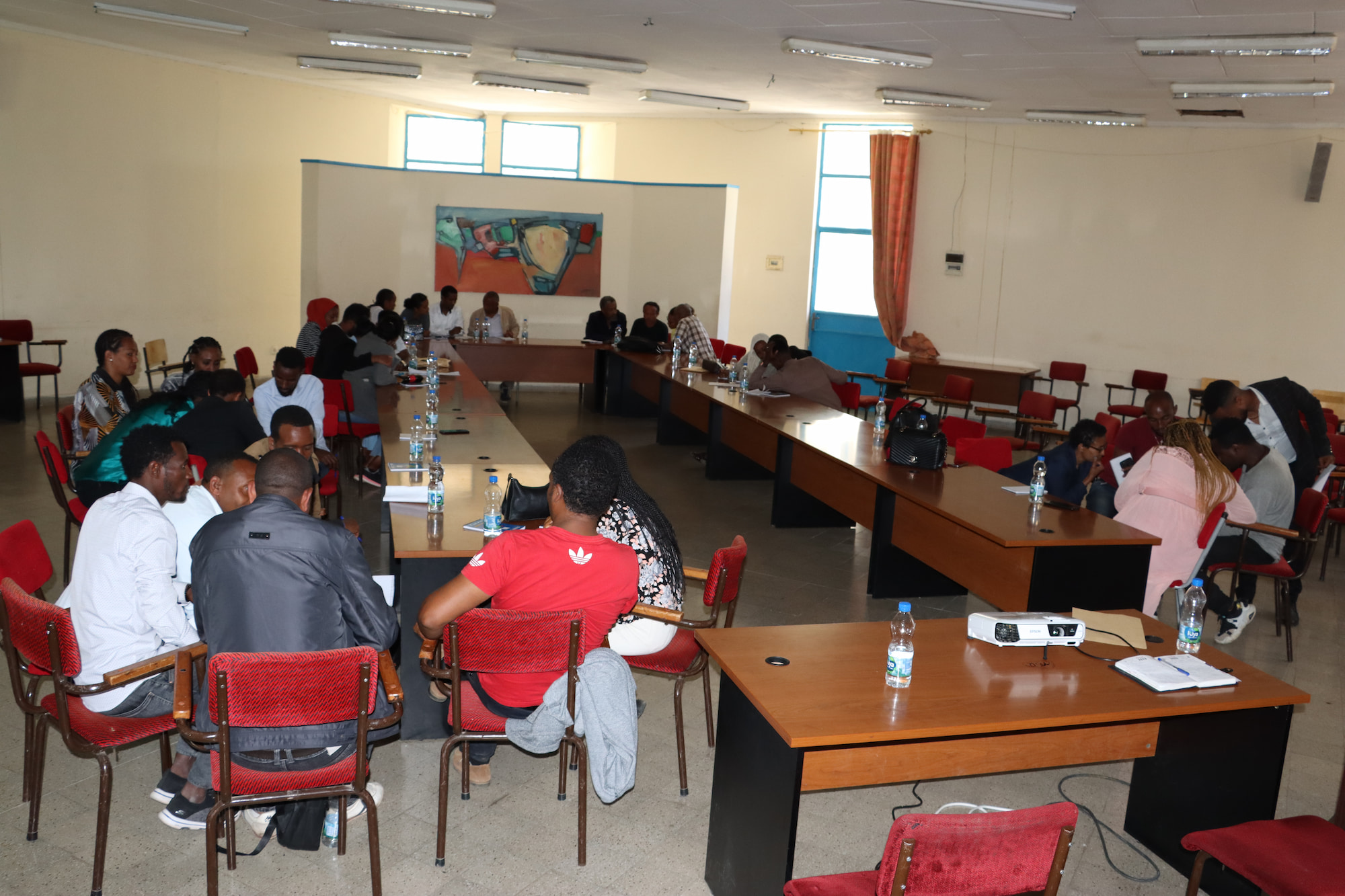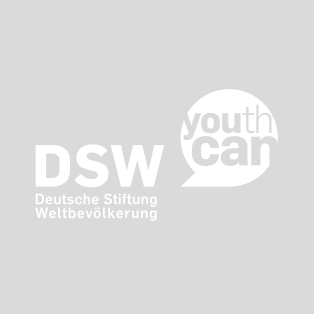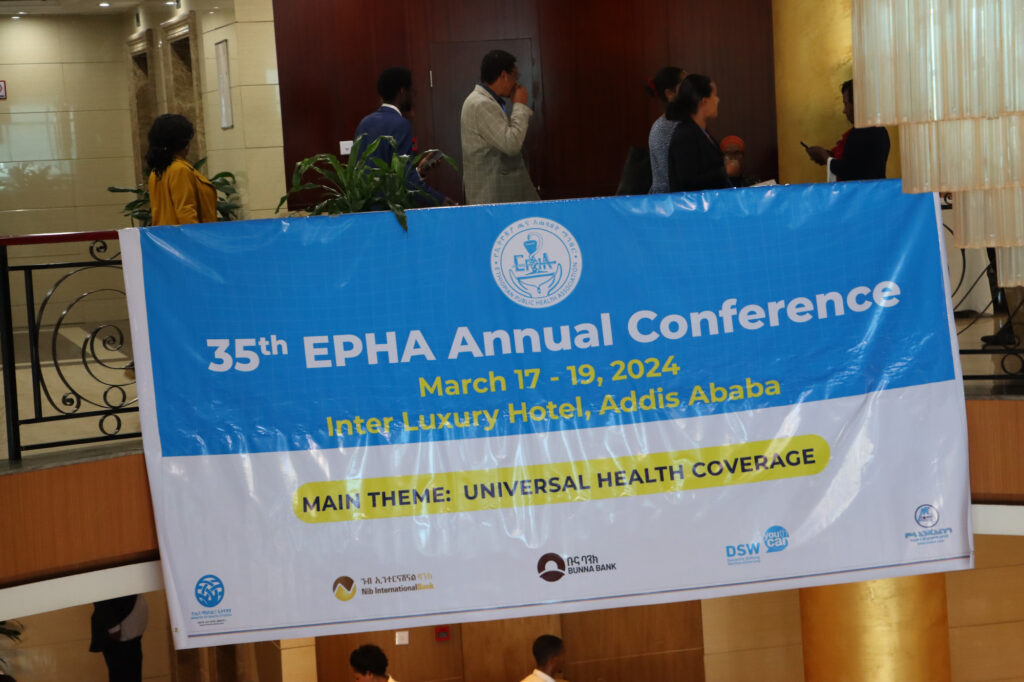

Voice for Choice Convenes a Joint Planning Meeting for 2nd Phase
During the second week of April, stakeholders convened at DSW Youth Development Training Center for a joint planning meeting a few months after DSW launched the second phase of the Voice for Choice (V4C) project in Ethiopia. A day-long planning meeting on the 10th of April brought together representatives from various government offices and bureaus with technical expertise and prior knowledge of the V4C project, which is conceptually modeled on a youth empowerment program.
Youth who represent the youth empowerment centers with direct involvement and stakes in the project along with other youth groups’ members also took part in the joint planning meeting (JPM). The JPM was scheduled to incorporate topics and activities ranging from a welcoming event to a project background presentation. After six working groups each comprised of six members presented their proposed plan of action, a plenary discussion thoroughly reviewed and filtered the plans. Although the proposed plans were, by and large, built up based on the lessons learned from the first phase of the project, there are activities being aligned in the plans with the context of the dynamic needs in sexual and reproductive health and rights (SRHR) of the youth whose growing aspiration for empowerment focused on the need for youth-friendly service-based provision.
In all practical manners, DSW has already established the provisions of integrated youth-friendly clinics through a separate project but conjoining across the six youth empowerment centers, which are part of the V4C intervention. In the first phase, the youth empowerment and engagement approach (YEESA) was a key strategy.
The main objective of the second phase of the V4C project focuses on strengthening and supporting service delivery through networking with the youth-friendly clinics (YFCs). Although in-school youth at secondary school are part of the targeted groups in the second phase, the intervention in this particular case primarily focuses more on the demand creation to link the activities with YFCs than engaging in empowerment efforts. These were some of the key topics covered at JPM in the early session.
DSW’s Ethiopian team led by Country Director Feyera Assefa, hosted and facilitated the JPM, Feyera enthusiastically reminded the stakeholders that “there is not a single project that would have a luxury of furthering efforts into a second phase without prior attainment of an encouraging progress in an earlier endeavour. So the story of the very project we find good reason to come together and make a joint planning was typically buoyed by its success during the first phase of implementation. Thus, we need to renew the collective efforts with greater devotion as we are setting the plans that demand our commitment to deliver before we gather again for reviewing what have transpired, then. Because, the good outcome of a project is essentially as good as it goes with its planning.”
After the participants went through the plenary discussions and completed group works, the most sought-after points of discussion to foster in their plan of action include the attainment of enhancing the youth clubs into the home-grown non-governmental organisation (NGO) status. This idea was strongly driven from the efforts made during the first phase of the project that empowers a couple of former youth clubs to become registered local NGOs over the period of three years during which the first phase of the V4C project was undertaken.
More youth clubs are now inspired and being encouraged as they have pledged and envisioned to empower themselves to a new level. The plans are set to attain their goals in the course of implementing the second phase of the V4C project.
In his closing address, Feyera reassured everyone in attendance that “DSW is out there to ensure the empowerment of Ethiopian youth and it measures the merit of its own success not only by the continuous enhancement of youth empowerment but also the manner in which DSW pursues the engagement of empowered youth who make a difference in championing for their SRHR. Let’s all be able to live up to our share of the commitment in line with the plans of this project. Doing so, we will voice for more and more youth’s choices to be empowered both individually and institutionally.”
Voice for Choice (V4C) is already in its second phase The first phase was successfully concluded after the first three years of its implementation resulted in scaling up. V4C is a project embraced by the youth empowerment program and has been addressing the sexual and reproductive health (SRH) needs of the young people aged 15 – 24 across the Amhara, Oromia and Southern Nations-Nationalities and Peoples regions. The Voice for Choice project is financially supported by Dirk Rossmann, one of the founders of Deutsche Stiftung Weltbevölkerung (DSW).

Photos: private

